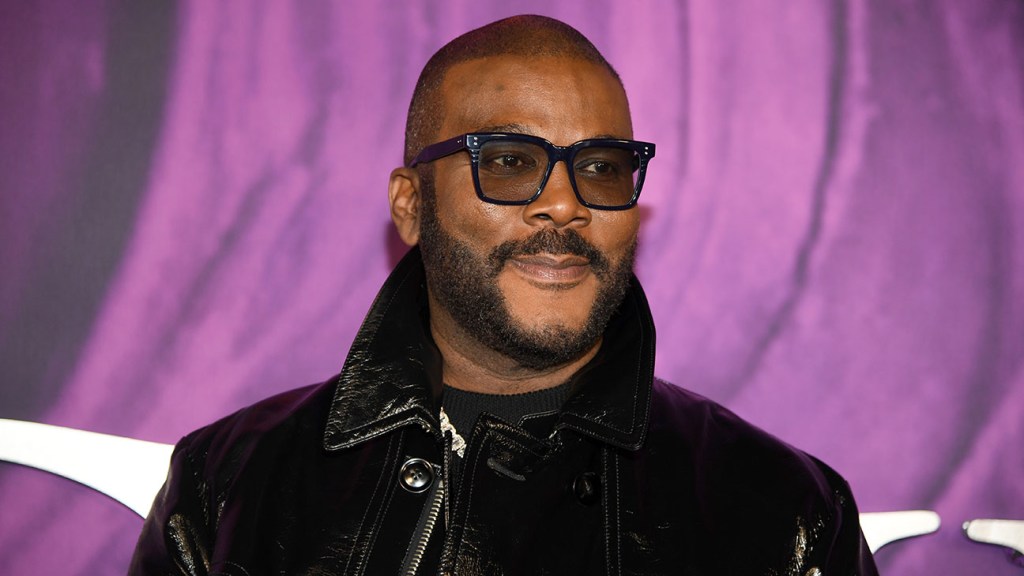Tyler Perry Pauses $800M Studio Expansion Following Encounter with OpenAI’s Sora: “Foresees Job Losses”
Tyler Perry, renowned actor, filmmaker, and studio owner, recently voiced concerns regarding the burgeoning influence of artificial intelligence (AI) in the entertainment industry. Perry’s apprehensions arose in response to OpenAI’s groundbreaking text-to-video model, Sora, which he believes has the potential to revolutionize film production. In a candid interview with The Hollywood Reporter, Perry shared his insights on the transformative impact of AI and its implications for the future of Hollywood.
The Potential of AI in Film Production
Perry’s $800 million expansion plans for his Atlanta-based studio, which included the addition of 12 soundstages, have been placed on indefinite hold following his exposure to Sora’s capabilities. The technology’s ability to generate lifelike scenes and settings from mere text has left Perry astounded, prompting him to reconsider the necessity of traditional location shoots and set construction. From snowy landscapes in Colorado to lunar vistas, Sora promises to streamline the filmmaking process and reduce production costs significantly.
Implications for Industry Labor and Employment
While Perry acknowledges the potential benefits of AI in enhancing efficiency and creativity, he remains deeply concerned about its impact on industry labor and employment. As an employer and advocate for fellow filmmakers and actors, Perry fears that the widespread adoption of AI could lead to widespread job displacement across various sectors of the entertainment industry. From actors to grips, electricians, and editors, Perry foresees AI touching every facet of the filmmaking process, potentially jeopardizing livelihoods and undermining the traditional studio model.
Navigating Uncertain Terrain: Industry Responses and Challenges
In light of the rapid advancements in AI technology, Perry stresses the urgency of implementing regulations and safeguards to protect industry workers and uphold labor standards. While Perry has already incorporated AI into some of his productions to streamline processes such as makeup effects, he emphasizes the need for collective action within the entertainment industry to address the multifaceted challenges posed by AI’s proliferation. Perry calls for a unified approach, urging industry stakeholders to collaborate in crafting comprehensive solutions that safeguard the future of filmmaking and preserve the livelihoods of industry professionals.
Key Takeaways
1. AI technologies like Sora have the potential to revolutionize film production by streamlining processes and reducing costs.
2. Concerns persist regarding AI’s impact on industry labor and employment, with fears of widespread job displacement and economic uncertainty.
3. Collective action and regulatory measures are needed to address the challenges posed by AI and ensure the preservation of industry standards and livelihoods.
FAQs
1. How does Sora’s text-to-video model work?
Sora utilizes advanced AI algorithms to generate lifelike video sequences based on textual descriptions provided by users, eliminating the need for traditional location shoots and set construction.
2. What are Tyler Perry’s main concerns about AI’s impact on the entertainment industry?
Perry is primarily concerned about the potential job displacement and economic uncertainty resulting from the widespread adoption of AI technologies in film production.
3. What steps does Perry advocate for addressing the challenges posed by AI in the entertainment industry?
Perry calls for collective action among industry stakeholders to implement regulations and safeguards that protect industry workers and uphold labor standards in the face of AI’s proliferation.
Conclusion
Tyler Perry’s reflections on the transformative potential of AI in the entertainment industry underscore the need for proactive measures to address its wide-ranging implications. As Hollywood grapples with the advent of AI technologies like Sora, collective action and regulatory frameworks will be essential in navigating the evolving landscape of film production while safeguarding the livelihoods of industry professionals. By embracing innovation while prioritizing the well-being of its workforce, the entertainment industry can chart a path towards a sustainable and equitable future in the age of AI.

